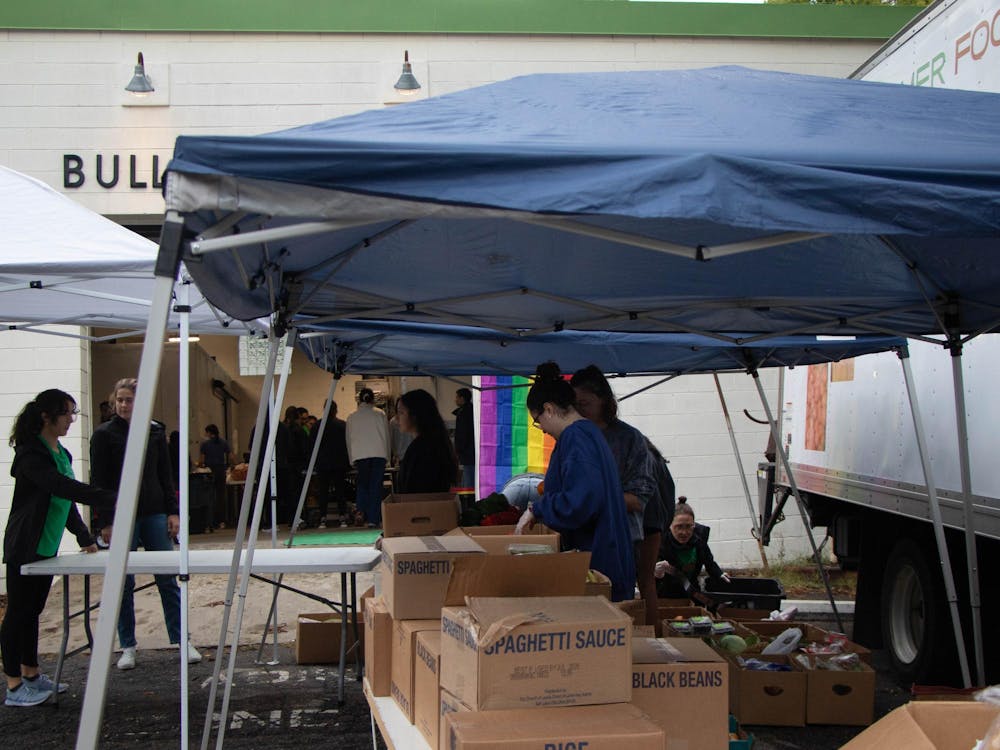In 1974, Duke offered its first service-learning course. Since then, those individual service-learning courses have expanded into Duke Service-Learning, an initiative supporting 80 separate courses this fall semester alone.
The mission of the program is outlined in Duke’s founding indenture, which values combining education and service. However, in an increasingly politically reflective and active society, the conversation surrounding service-learning courses is changing — students are now becoming more considerate of the purposes, goals and results of service-learning courses.
“It's never going to be a perfect system. That is something that we really encourage students to think about and bring into the conversations that we're having. This is not a risk-free practice,” said Director of Service Learning Joan Clifford.
Challenges and opportunities of service-learning
Clifford believes service-learning holds an important place in academic coursework at Duke, regardless of potential challenges.
“Students see the possibilities of being leaders, of being team players and of really gaining knowledge from the community. Those interactions just don't happen when you're in the classroom.”
Sophomore Alexis Mosu, the teaching assistant for Clifford’s class, Spanish 306, has seen the benefits of service-learning firsthand.
“I got to directly speak with Spanish speakers, but also people who were genuinely in need in the community, and got to talk with them about food insecurity in Durham,” she said. “The people there really treated me like family. I ended up spending so much time there, I got almost two times the amount of hours I was supposed to get for the class.”
Despite the benefits, Clifford acknowledges that there are inevitable harms that come with service-learning. Both Clifford and Mosu noted that the greatest potential harm was the idea of saviorism, or the concept that students only volunteer to benefit themselves without regard for the community they are serving.
In order to curb this threat of saviorism, Clifford notes that Duke practices critical service-learning instead of the traditional forms of service-learning. This means that students are encouraged to look at the systemic issues that are causing the need that they are filling.
“We really try to analyze the systemic and bigger picture of why we need these services,” Clifford said. “Not just learning the skill set or task that the nonprofit wants us to do, but asking how we can be informed enough to work in solidarity with the community to actually try to move the needle on that.”
Along with preventing saviorism, Clifford and Mosu agree that there need to be conversations in the service-learning department surrounding the hours requirement, and whether or not the requirement should be lowered or not exist at all.
“You don't want to just give your time to give your time,'' Mosu said. “You're giving your time to learn more about something, to grow personally, to grow within the community and to grow the community itself.”
Bursting the Duke bubble
Still, Clifford and Mosu both underscore how service-learning has transformed Duke’s relationship with the community.
“I did interviews with community partners as part of a project, and every single organization said that what they valued the most in the partnerships were the relationships that they built,” Clifford said. “So that's speaking to the core of service-learning, that's the human aspect of what we're doing. It's the connections and the relationships that we're building.”
It is fairly common for students to continue to work with their service-learning organization even after their class ends, including several students from her spring course, Clifford said. Mosu is one of these success stories.
After volunteering with Root Causes for her Spanish class, she was offered the position of Volunteer Coordinator where she found other Duke students like her who continued to support the organization after their courses ended.
In addition to service-learning students, various other Duke and community members support these organizations.
In an effort to continue these community relationships Clifford shared that Duke is working on the creation of a new center for community engagement in order to centralize communication and advocacy efforts.
For Mosu, service-learning and community engagement as a whole has transformed the way she views herself not just as a student of Duke, but as a citizen of Durham.
“Stepping outside of the Duke bubble and understanding where you lie in a much larger community is crucial, which is why service-learning is so integral at Duke.”
Get The Chronicle straight to your inbox
Signup for our weekly newsletter. Cancel at any time.
Olivia Schramkowski is a Trinity junior and was formerly a staff reporter for the news department.

